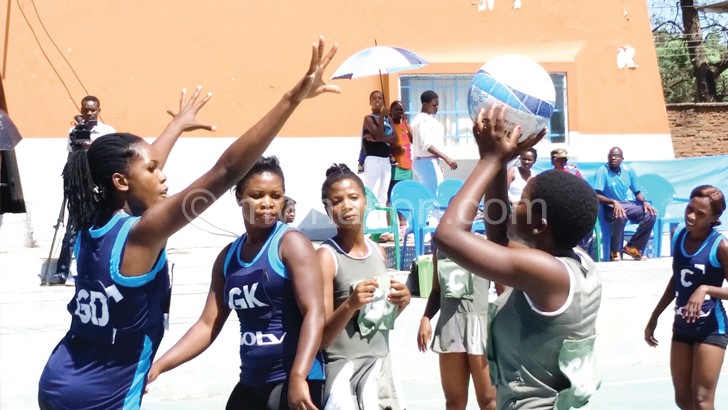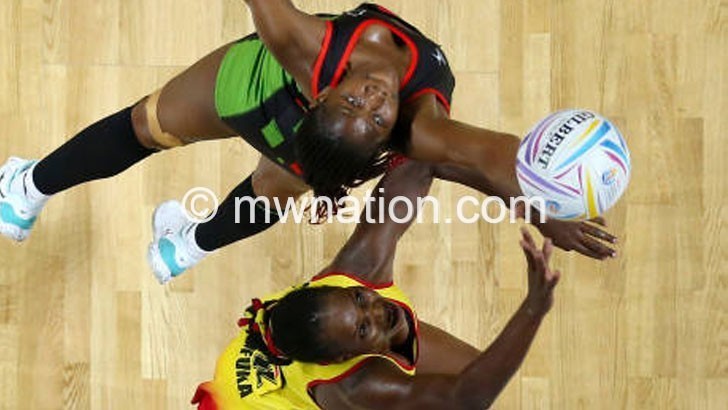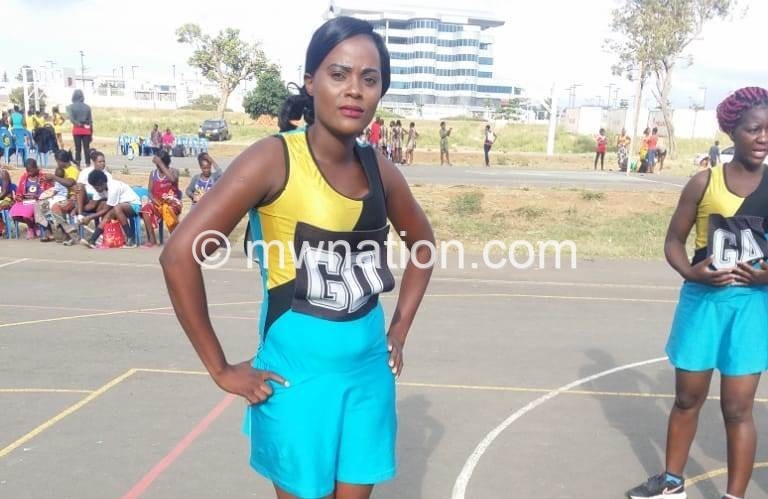No sweet for netball sweat
Malawi national netball team’s success on the international stage has not made a significant impact on the ground as infrastructures remain poor while most clubs face financial hardships, forcing them to stop paying their players, Sports Xtra has established.
Added to this, the Central Region Netball League (CRNL), which has produced a number of national team players, has not been played for the past four years after losing Bio Clinics sponsorship.

This is happening when the national team is usually ranked first or second in Africa and fifth or sixth on the world stage following good showing in international tournaments.
The sport has also produced New Zealand-based iconic shooter Mwawi Kumwenda, the first netball export, who was named best player at the 2015 World Cup. She was also voted International World International Games Association (IWGA) Athlete of the Year.
At club level, the key victims of lack of sponsorship are Tigresses and Thunder Queens (formerly MTL Queens) who have been contributing the bulk of players to the national team.
Tigresses’ assistant team manager Ruth Kaipa-Chimombo disclosed this week that the club stopped paying their players upkeep allowances and game bonuses sometime back amid financial problems that followed the death of their sponsor former president Bingu wa Mutharika in 2011.
“Right now what we are able to provide our players with is minibus transport to training sessions,” she explained. “The other benefits like monthly upkeep are no longer provided.”
Kaipa-Chimombo said the only incentive they provide to the players is that once they win a monetary prize in any competition they share the money.
“If they don’t win a tournament the players don’t receive any significant amount of money for a long period. It’s a tough situation for the players,” she said.
The misfortunes for Tigresses took an ugly turn when College of Medicine (COM) Sports Complex, which was offering the team free training facilities, terminated the deal last year.
Meanwhile, Thunder Queens player Esther Kayira said the club has been struggling to pay them after MTL withdrew their sponsorship four years ago.
Kayira said that just like Tigresses, their key source of income is tournament prizes.
“Under the circumstances, it’s really hard for the players to feed and clothe their families. If you don’t win, you don’t receive anything,” she said.
Diamond Sisters, which Kumwenda used to play for, recently signed a sponsorship pact with Kukoma Limited through which the club pockets K4 million annually.
But the club’s coach Griffin Saenda said the sponsorship is not enough to cater for the players’ monthly upkeep allowances. He disclosed that the funds are usually used for transportation and buying equipment.
Like Tigresses and Thunder Queens, Saenda said the only time the players receive meaningful wages is when the club they have competed in a tournament and have clinched first, second or third positions which have monetary prizes.
He estimated that for a netball club to manage its players and affairs thoroughly it needs a minimum of K11 million annually, which he doubted any sponsors of other clubs would commit.
Meanwhile, Netball Association of Malawi (NAM) president Rosy Chinunda said she was disappointed that the international fame netball was gaining has translated into nothing on the ground.
“It is shocking that some big clubs do not have sponsors when the country’s netball has become a big brand on the international stage,” she said.
Chinunda also blamed lack of secure venues where the teams could have been generating revenue through gate collections.
“Unlike football, most public netball courts are not well equipped to enable teams to benefit from gate collections. We really need to work on improving infrastructure,” she said.
Meanwhile, the Ministry of Sports and Culture spokesperson Christopher Mbukwa said they are still pushing for the construction of indoor courts whose plans were laid down four years ago.
He, however, advised NAM to use the available infrastructure to come up with revenue generating strategies. He cited the Blantyre Youth Centre (BYC) which is fenced and secure.





